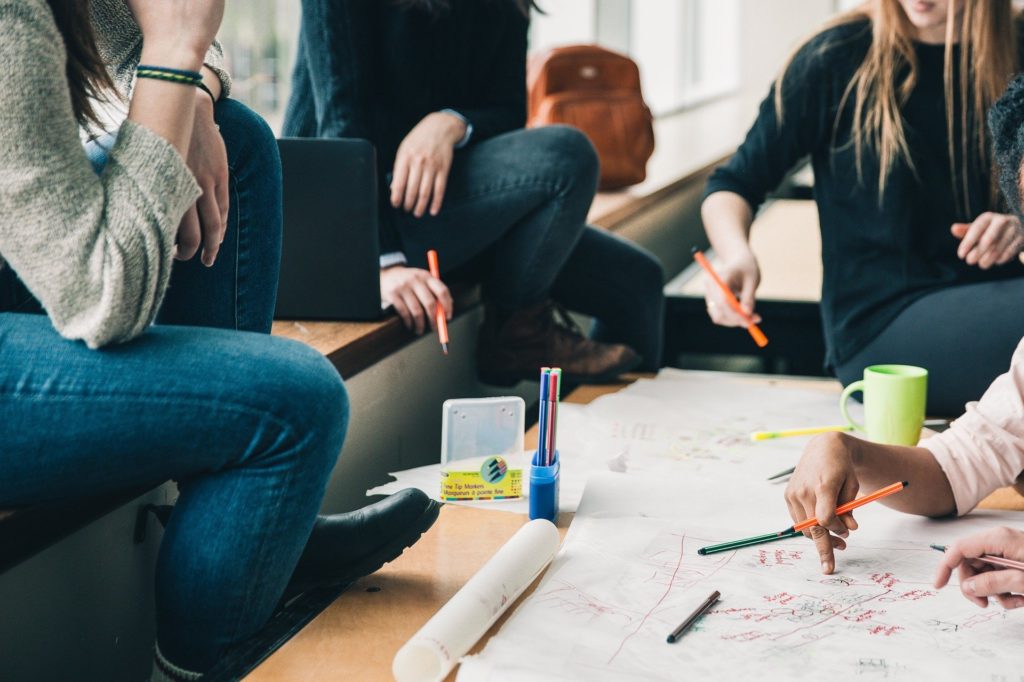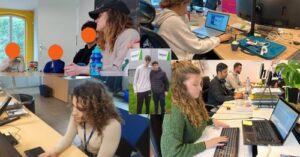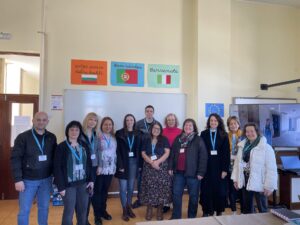The first five institutions, with which the German Network for the Improvement of Vocational Training is being established, represent a wide variety of training occupations and sectors. In addition to four vocational school centres, a chamber of commerce is also partner in our national network. We present them here briefly – with current facts on training courses and figures as well as exciting side notes.
The school was already founded in 1911 as the first institution for higher education for women in Germany. Today, however, in the sense of equal rights, the question is more likely to be asked: What is the proportion of male apprentices in the social professions? At the Henriette-Goldschmidt-School, just under a third of the apprentices are men, who are trained in the following areas:
- Higher secondary vocational school for health and social work
- Vocational preparation year body care/health
- Podiatrist
- Child care worker
- Social care worker
Currently about 500 young people study at this school and 52 teachers work here.
The vocational school for nutrition and gastronomy is not only the training centre for currently almost 1000 students. It is also home to the Central German Hospitality Museum with about 15,000 exhibits documenting the development of the gastronomy and hospitality industry in the region. In addition, in the unique specialised library in the building, a pool of publications of all gastronomic branches is available to interested parties: cookbooks, restaurant guides, wine and confectionery books, but also specialist literature from areas such as marketing and management, as well as a large collection of national and international menus.
The following training courses are offered:
- Vocational preparation year nutrition, customer service and housekeeping services
- Basic vocational training in nutrition, customer service and housekeeping
- Baker
- Hospitality professional
- Specialist for system catering
- Salesperson in the food trade (focus on bakery)
- Hotel professional
- Cook
- Confectioner
- Restaurant professional
- State-certified business economist (specialising in the hotel and catering industry)
Recently awarded again as one of the best training companies in Germany, LAB currently trains 96 young people for LVB GmbH. The training courses are highly demand-oriented, so that the trainees can also be given a guarantee of employment after passing their exams. In addition to professional skills, the training is also about teaching social skills, keeping trainees healthy and working together in a spirit of mutual respect. To this end, the F.I.T. trainee programme was created, which offers several courses throughout the entire training year.
The following professions can be learned at LAB:
- Civil and underground construction worker
- Cook
- Specialist in vehicle operation (e.g. bus driver)
- Vehicle painter
- Driver with basic technical training
- Automotive mechatronics technician
- Mechatronics technician
- Construction mechanic
- Electronics technician for operating technology
- Industrial business management assistant
- Gardener
- Cutting machine operator
- IT systems technician
The history of the vocational school dates back to 1854, when it was founded as the first guild school of the Dresden merchant community. Even today, only commercial training courses are offered, albeit in far greater number than at that time and nowadays in two branches: Currently, 90 teachers and 1462 apprentices come to both schools every day. A separate working group is responsible for the history of the school and its graduates.
In addition to the vocational high school for economics, the following professions are trained at the school today:
- Specialist in labour promotion
- Bank clerk
- Industrial business management assistant
- Management assistant in office management
- Management assistant for insurance and finance
- Notary’s assistant
- Paralegal
- Assistant tax consultant
- Social insurance assistant
Since its foundation in 1911 in Berlin-Charlottenburg, ITKAM has been promoting entrepreneurial exchange between Italy and Germany. The companies to which ITKAM offers its services today include both the traditional sectors of Made in Italy (especially food but also fashion, furniture and design) and companies from various fields of technology and industry, such as supply industry, healthcare, automotive and Industry 4.0.
“For this reason”, says Sonia Barani of ITKAM, “Italy is not only suitable for those who want to gain experience abroad in the traditional sectors of gastronomy and tourism, but also for trainees working in industry”.
What are the benefits of mobility projects for institutions?
One of the tasks of the ENNE network in Germany is to make the possibilities and advantages of Erasmus+ Mobility for trainees and teachers better known. The partners support this concern not only out of conviction, but also with concrete experiences. Katharina Muschiol from LAB explains: “Since our trainees primarily take part in the exchange trips on their own, we have a great deal of trust in them, so they can assert themselves in the name of the company and thus also identify with it, which is a major factor for company loyalty”. Ferenc Naacke from the Vocational School Centre for Economics in Dresden emphasises how important, in his experience, the preparation and follow-up of the stays abroad are. Several of the partners mention that the participants of a mobility project take far more with them than just new professional impulses. Getting to know and experiencing all aspects of a culture and also developing their communication skills really helps young people. “It also strengthens the sense of community among the trainees”, says Katharina Muschiol.





